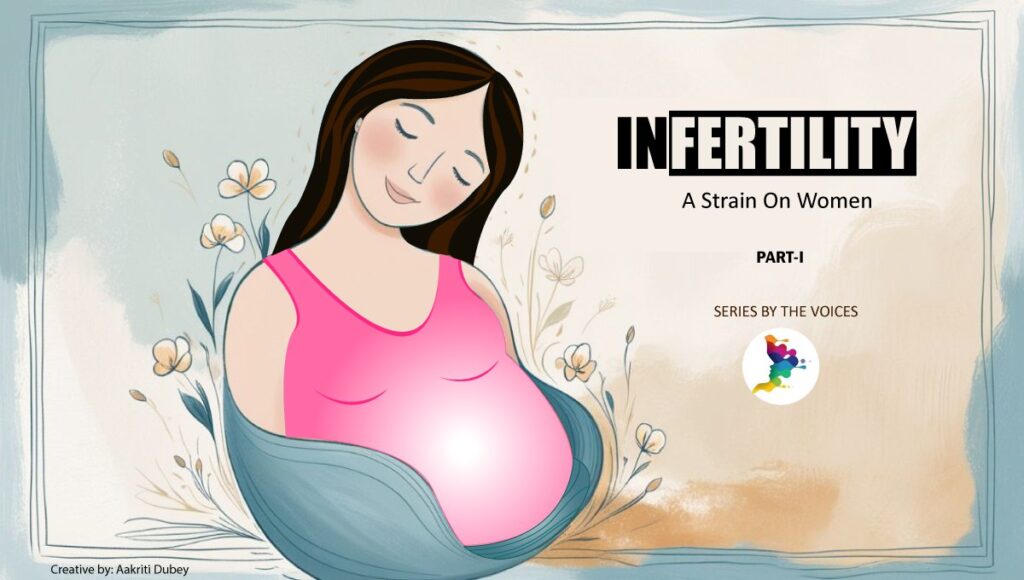Infertility has been one of the most concerning issues for women when they reach the age of childbearing. However, it further impacts their mental and physical health as they age. According to one of the reports, one out of every six adults – who reach reproductive age – experience infertility. It has only increased recently due to a major shift in lifestyle and sedentary ways of life.
Infertility in women is caused by disorders that can occur in the ovaries, uterus, fallopian tubes and endocrine system. At the same time, men also face infertility, which is caused by issues with semen ejection, the absence or inadequate amount of sperm or the sperm’s abnormal shape and movement. However, it is women who have to go through most of the stigma and trauma because of the way society is conditioned. The Voices team interviewed a gynaecologist and an IVF specialist, Dr. Kalyani Shrimali and Dr. Alpna Kansal, a Gynaecologist and Obstetrician, to dive deep into the growing rate of infertility in both men and women.
The Reality and Medical Help
According to a study by the World Health Organization, 8%–10% of couples worldwide face infertility and have tried to go for remedies to reverse them. These include ovulation induction drugs, antioxidants, and supportive treatments that help mature eggs and sperm, according to Dr Shrimali.
In a time and age where a woman is expected to do all of it: have a job, bear a child and take care of the family, the stigma of being infertile adds an unprecedented amount of pressure on their mental health. To help patients deal with all of these, “The infertility treatment primarily focused on hormones followed by the treatment using medicines,” Dr Shrimali said.

Many women who are initially diagnosed with infertility are faced with the weight of stigma and superstitions. Mixed with emotional pressure and self-doubt, a woman goes through a lot when she is first diagnosed with infertility.
Modern-day medication has come a long way and helps couples in every way possible to conceive and bring a bundle of joy into their families. “The most commonly used medicines are ovulation induction drugs, which help in the formation of the eggs in the female. Also, there are a lot of antioxidants and supportive treatments which help the infertile couples,” Dr Kansal said. She added that fertility medications like Clomiphene Citrate and Gonadotropins are known to help induce ovulation by restricting estrogen receptors in the brain and stimulating the ovaries to generate numerous eggs.

Surgical procedures like laparoscopic surgery and hysteroscopy can help deal with blocked fallopian tubes and can help remove polyps, fibroids and scar tissue that may impact fertility. Other methods include Assisted Reproductive Technology (ART). ART comprises one of the most popular forms of fertility treatment – In Vitro Fertilization (IVF).
Advice From The Expert
Dr. Kansal advises women struggling with infertility to seek professional help as soon as possible. She advises to consult an infertility specialist without delay and any hesitation, regardless of marital status. Avoid wasting time with unverified treatments.

Dr. Kalyani Shrimali also suggests trying to conceive at the right age. If a woman has reached 35, she must consult her doctor and confirm if she can wait longer. She emphasized that there are many treatments available. Undergoing infertility treatment should not be considered a social taboo. One should be able to plan pregnancy as soon as possible.
Once a couple has gone through many of these treatments and has had success, the next steps are to be carefully planned. Not only are the first few months important, but they also tend to be the most crucial for the safety of the mother and the child. The support should be empathetic, not just medical.
Copyeditor: Aaryanshi Mohan

